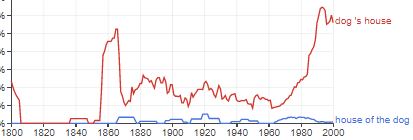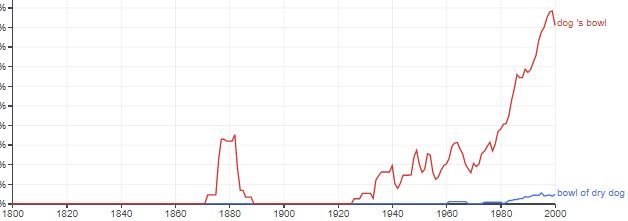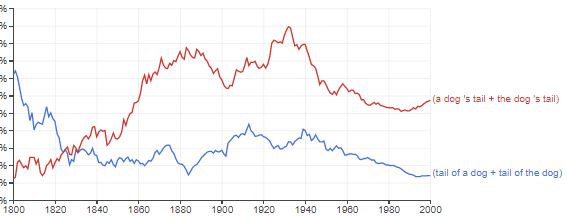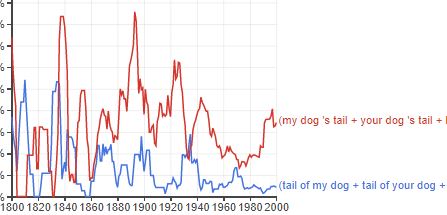Upd.: I added the results of Ngram at the ending of this post.
I have some sources below which I can make the next conclusions from:
"the bowl of the dog" is incorrect
"the house of the dog" is correct
"the tail of the dog" is correct
Why are numbers 2. and 3. correct, but 1. not? What is the difference between them all?
Now, in detail:
I think "That's a bowl of my dog" is grammatically wrong.
'This is the house of the dog' may be grammatically correct, but it's a pretty unlikely sentence. We would naturally say 'This is the dog's house.'
'This is the bowl of the dog' ... would sound ... odd.
So, 1. "…the bowl of the dog" is incorrect
the double possessive is pretty much always used with people ...: "This is a friend of Laura's" ... a dog isn't a person. So "This is the house of the dog" is fine.
So, 2. "…the house of the dog" is correct
Of the two:
- The dog's tail.
- The tail of the dog.
Grammatically, both are correct.
[…] when writing, it is advantageous to communicate your point with as few words as possible making your point clear and concise. Hence, why "The dog's tail" is preferential in colloquial english as opposed to "The tail of the dog."
So, 3. "the tail of the dog" is correct
Why are numbers 2. and 3. correct, but 1. not? What is the difference between them all? For me they are all the same.
Upd.:
"house of * dog" vs "dog's house" — Nobody uses "house of * dog":
"bowl of * dog" vs "dog's bowl" — Nobody uses "bowl of * dog" (without taking into account "bowl of dry dog food"):
"tail of * dog" vs "dog's tail" — Sometimes people can use "tail of * dog":
To make it clearer:
"tail of a/the dog" vs "a/the dog's tail":
"tail of my/your/... dog" vs "my/your/... dog's tail":
So, why can people use "tail of * dog" but not use "bowl/house of * dog"?
Thanks!





